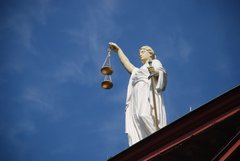
United Kingdom/England & Wales
Where a body representing taxpayers sought an order that the Revenue assess and collect tax from another group of taxpayers, the House of Lords refused standing on the ground that the body had insufficient interest and moreover there was nothing to indicate that the Revenue had acted unlawfully.
Background
The Federation represented a group of taxpayers who sought an order that the Revenue assess and collect alleged tax arrears from a number of casual workers and a declaration that the Revenue had acted unlawfully in not pursuing the full amount due.
Finding
The House of Lords found that the Federation had no standing because of insufficiency of interest.
Reasoning
The requirement that a body had sufficient interest provided necessary protection against abuse of legal process by busybodies and cranks.
Whether a body had "sufficient interest" could not always be decided in isolation and very often should be considered together with the legal and factual context. The question was whether the body had sufficient interest "in the matter to which the application relates".
Standing consisted of a two-stage test: a threshold question at the leave stage as to whether there was a prima facie case; and the merits stage at which the question could be revisited.
The confidentiality of income tax assessments and of negotiation between individuals and the Revenue was vital to the working of the tax system and no taxpayer had sufficient interest in asking the Court to investigate the tax assessments of another taxpayer. Moreover there was nothing to indicate that the Revenue had exceeded their powers.
Points of note
Lord Diplock's comments are noteworthy for their purposive approach. He said that rules of standing are "made by judges, by judges they can be changed". He went on to make the much-cited observation that "...it would, in my view, be a grave lacuna in our system of public law if a pressure group, like the Federation, or even a single public-spirited taxpayer, were prevented by outdated technical rules of locus standi from bringing the matter to the attention of the court to vindicate the rule of law and get the unlawful conduct stopped...."